Taiwan: Rescue efforts continue after 900 injured in earthquake
Rescue efforts are under way in Taiwan after a 7.4 magnitude earthquake struck the island's eastern coast, killing at least nine and injuring more than 900.
Some 127 people are trapped in collapsed tunnels and on mountainous roads along the rugged coastline.
The epicentre was 18km (11 miles) south of Hualien city, but strong tremors were felt all the way in the capital Taipei, more than 100km away.
This is the strongest quake to hit Taiwan in 25 years.
It also triggered tsunami alerts earlier in the day in nearby Japanese and Philippine islands which were later retracted. It caused the most damage in Hualien, where buildings fell, roads were blocked and train lines disrupted, leaving the remote region even more cut off from the rest of Taiwan.
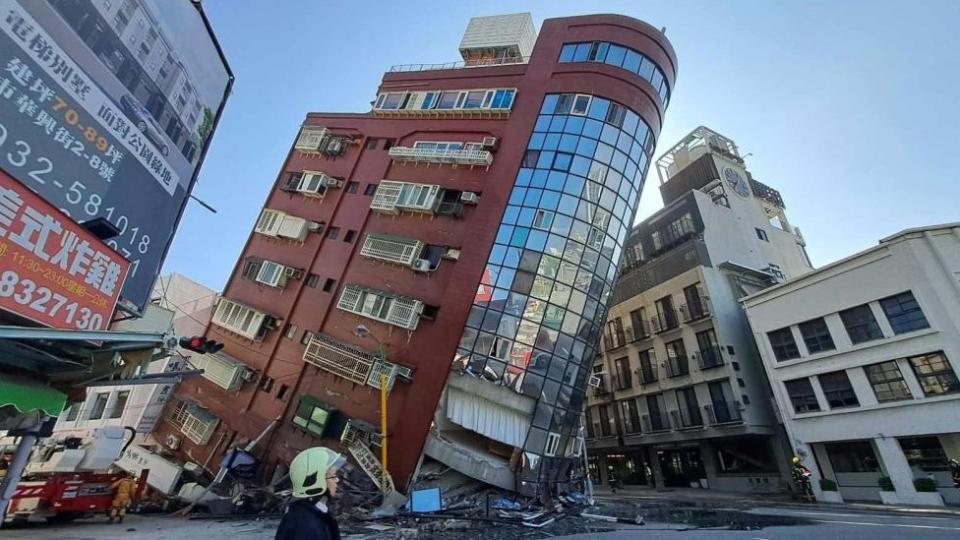
"I was just getting out of bed when a clothes rack and a low cabinet fell over," Ocean Tsai, who lives in Hualien, told BBC Chinese. "It kept getting stronger, and I started worrying about our belongings at home. Fortunately, apart from the motorcycle tipping over, the damage was minimal."
But social media was soon filled with extraordinary footage of landslides along the coast. They tumbled down the mountains, making huge clouds billow up from the sea as they crashed into it.
It is along this coastline, with its narrow, winding roads and tunnels carved out of the rock, that dozens have become trapped. The route is popular with tourists, famed for its spectacular views from the mountains out across the Pacific Ocean. But it is also known to be treacherous, not least because of the possibility of landslides.
Rescue operations to reach 77 people trapped in the Jinwen and Qingshui tunnels along the road in Hualien were continuing into the night. Pictures show how the road outside the Qingshui tunnel has simply fallen away.
It is unclear how long those inside will be trapped - and whether or not they have food and water, or can communicate with the outside world.
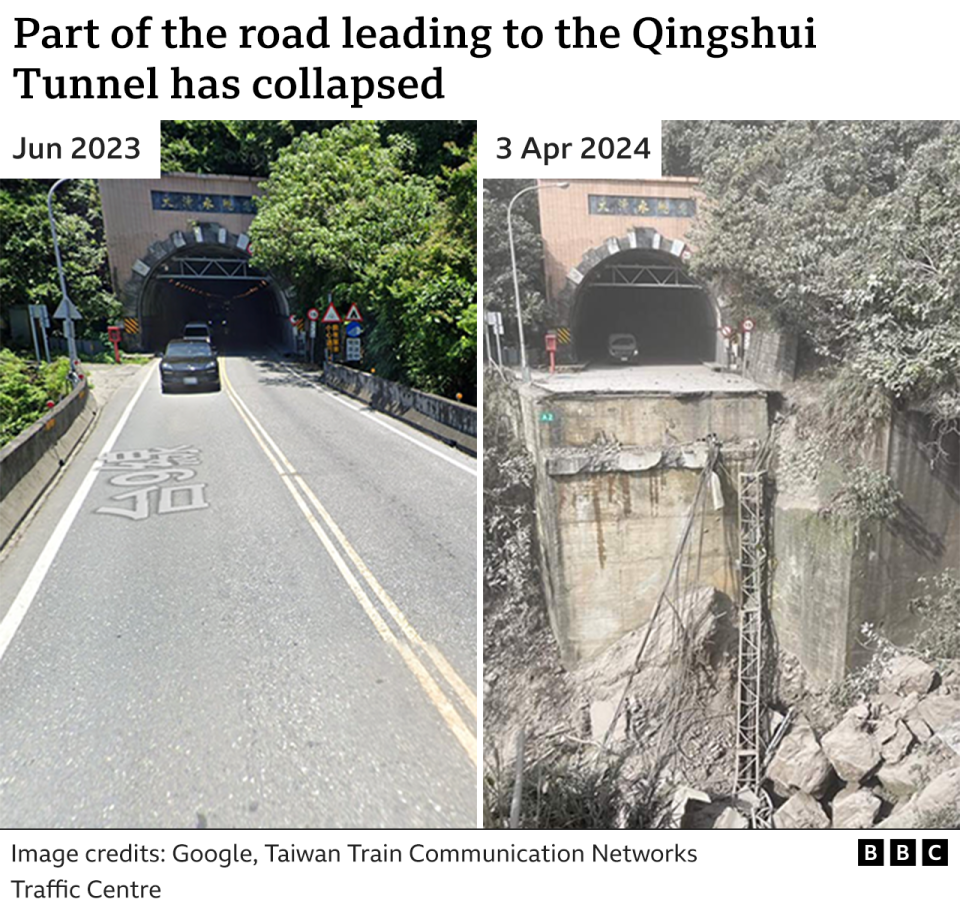
Further north, Taipei was also shaken violently with footage showing collapsed residential buildings, and people being evacuated from their homes and schools. Local TV stations aired clips of smashed vehicles and stores in disarray. Power cuts and internet outages were reported across the island.
"The earthquake is close to land and it's shallow. It's felt all over Taiwan and offshore islands... It's the strongest in 25 years," said Wu Chien Fu, the director of Taipei's Seismology Centre.
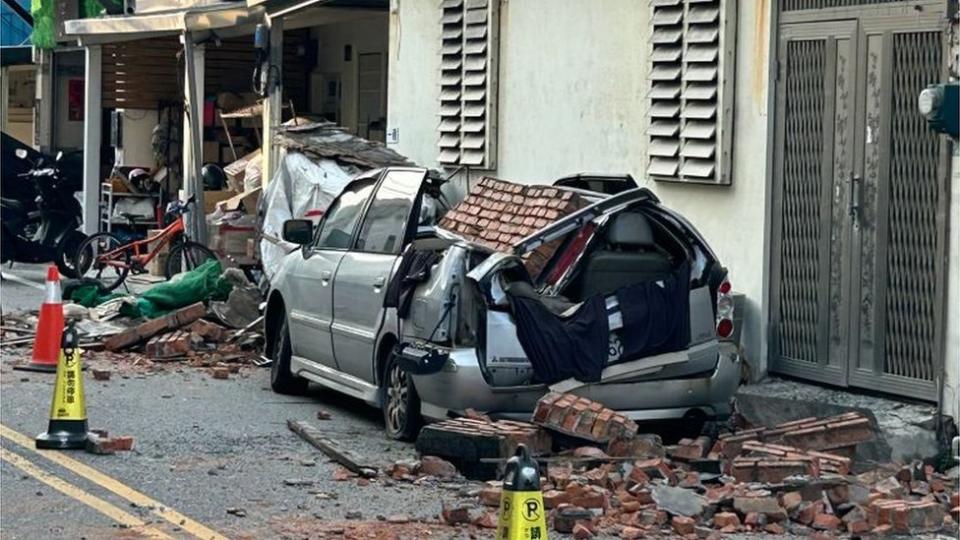
Taiwan, home to 23 million people, is largely mountainous in the east, where Hualien sits. It is a sparsely populated area, home to indigenous tribes. For most of its history, the area has been completely cut off from the rest of Taiwan because of its high mountains.
But since the 1930s the government has carved roads out of the rockface and built tunnels connecting the area to the rest of the island - it is still, however, considered a difficult place to reach, which will complicate rescue efforts.
These are stunning routes that take locals and tourists to the Taroko National Park, named after a landmark gorge, just outside Hualien, which is considered to be one of the natural wonders of Asia. Three of those who died were hikers on a trail there and 50 of those who are trapped are staff who were being transported to a popular hotel, ahead of a four-day long weekend.
Wednesday's earthquake hit at 07:58 local time (23:58 GMT) at a depth of 15.5km and set off at least nine aftershocks at magnitude 4 or larger.
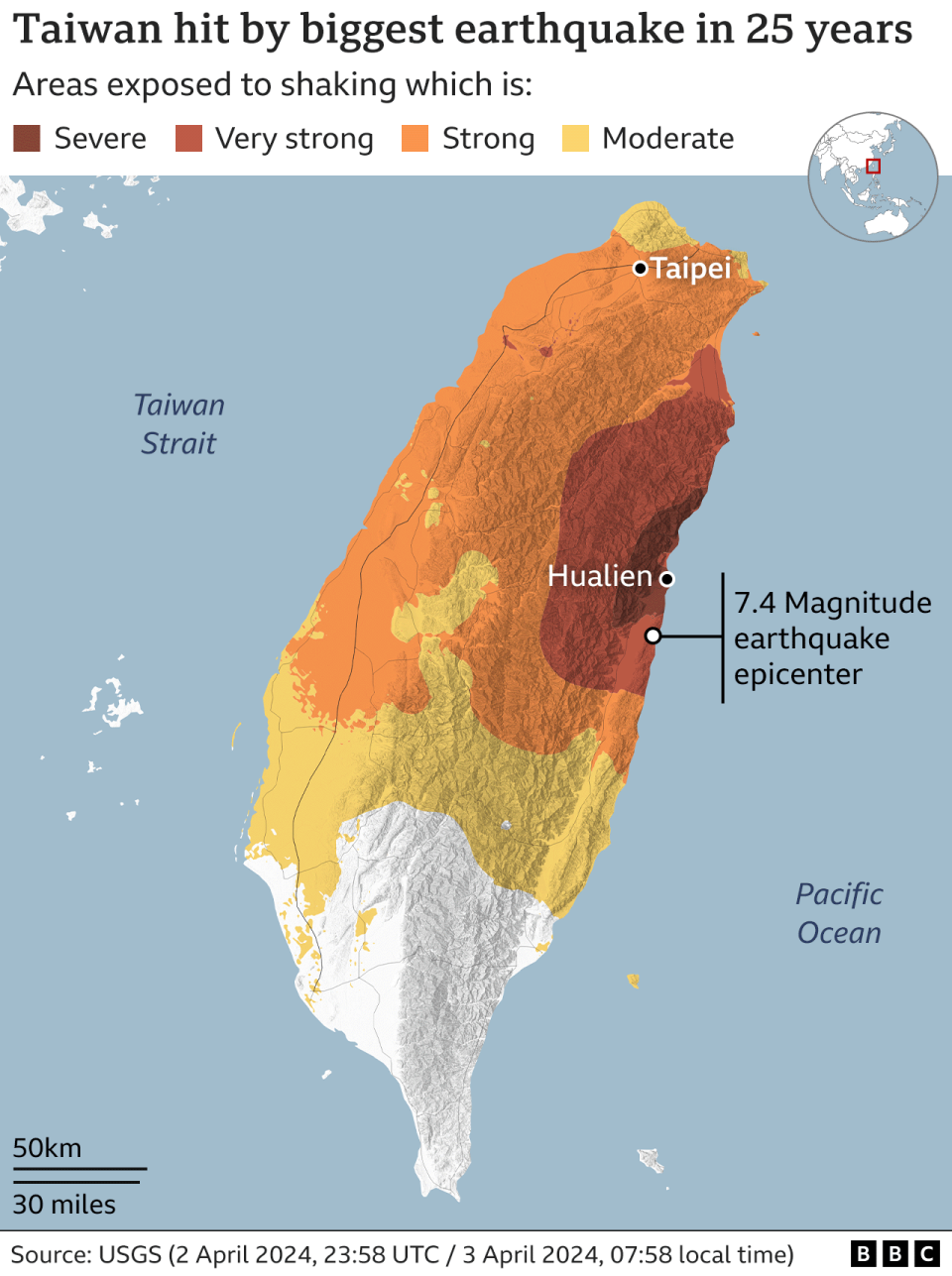
"The government must ensure the accuracy of information and provide timely assistance to people in need, so that people can feel at ease and safe," President Tsai Ing-wen said.
Taiwan's foreign office issued a statement on X expressing thanks for the offers of aid from "allies and friends" like Japan and Paraguay.
Taiwan's agency, which engages with China, the Mainland Affairs Council, also thanked China for its concern but said there would be no request for assistance from that side. Beijing claims sovereignty of the self-governed island, which sees itself as distinct from China.
While Taiwan has a history of quakes, both locals and foreigners who have lived in Taipei for years say this is the strongest quake they have experienced in decades.
The last major quake - at 7.6-magnitude - hit in September 1999, killing 2,400 people and destroying 5,000 buildings.
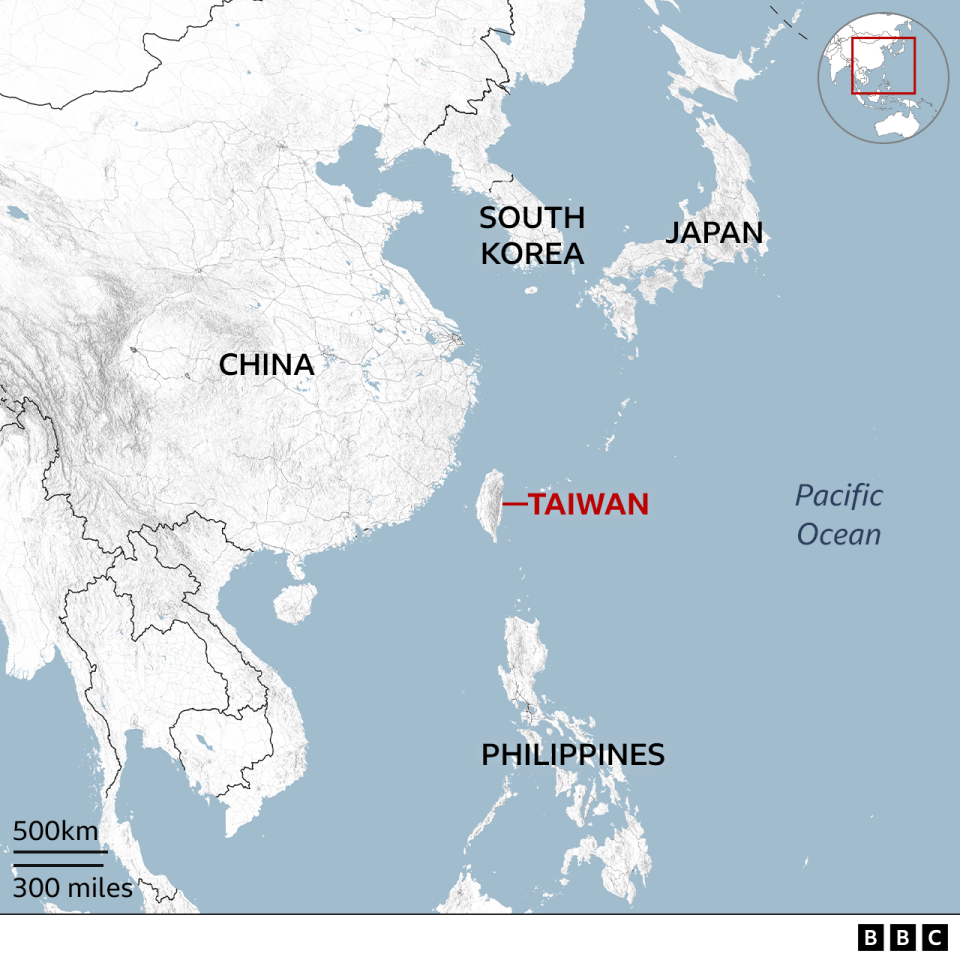
Additional reporting by Peter Hoskins in Singapore

Are you affected by the issues raised in this story? If it is safe to do so, share your experiences by emailing haveyoursay@bbc.co.uk.
Please include a contact number if you are willing to speak to a BBC journalist. You can also get in touch in the following ways:
WhatsApp: +44 7756 165803
Tweet: @BBC_HaveYourSay
Please read our terms & conditions and privacy policy
If you are reading this page and can't see the form you will need to visit the mobile version of the BBC website to submit your question or comment or you can email us at HaveYourSay@bbc.co.uk. Please include your name, age and location with any submission.

